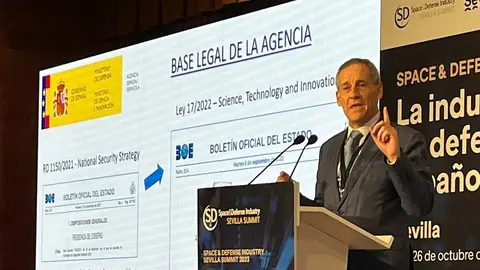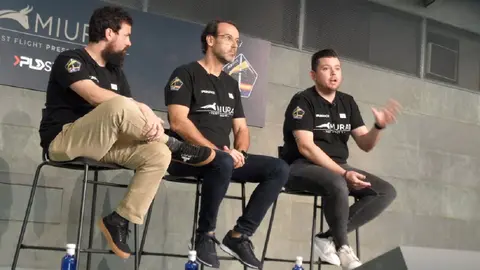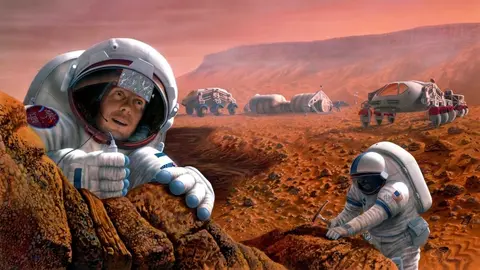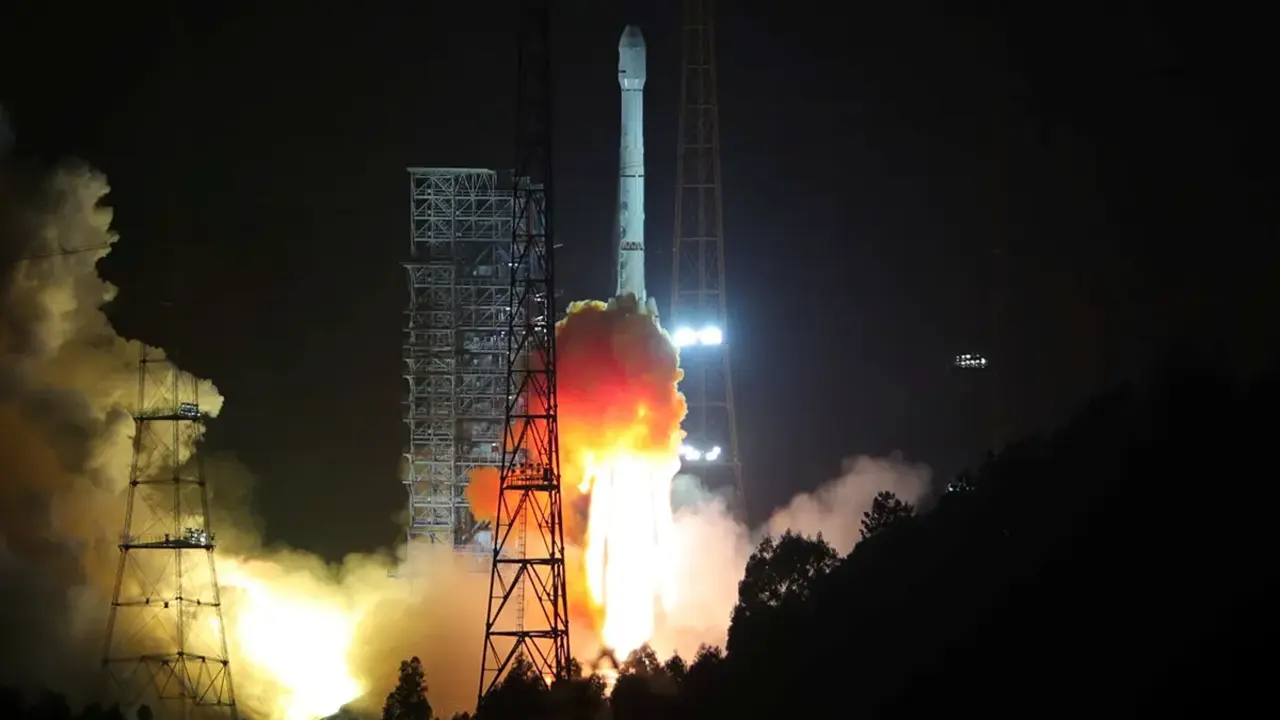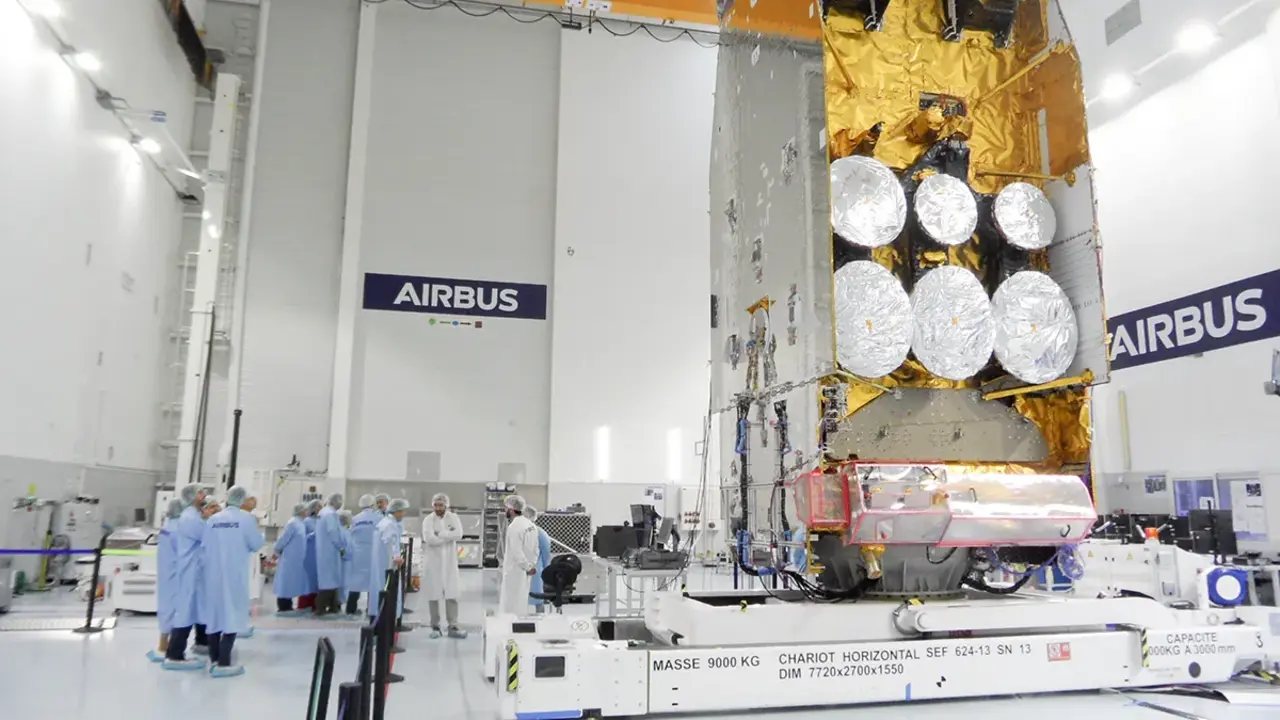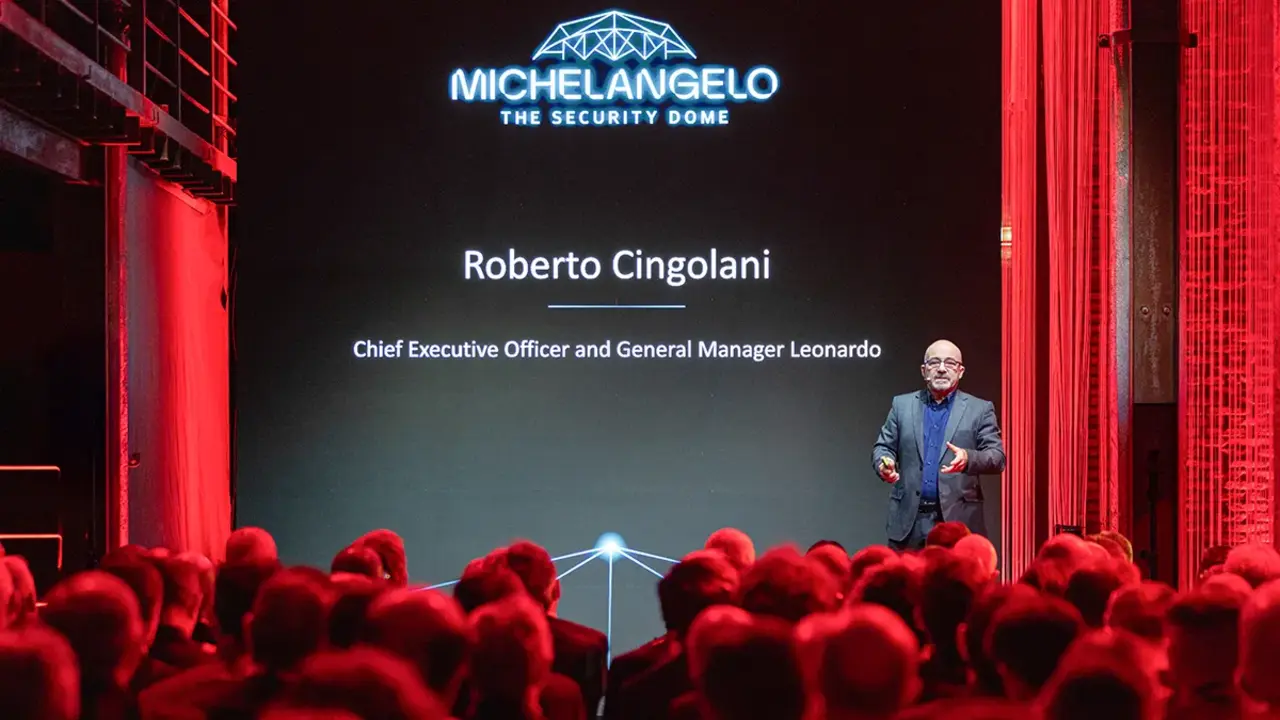Europe chooses in Seville whether or not to play a leading role in space exploration

This week, Seville becomes the European and Latin American capital of the space sector. From 6 to 10 November, the top brass of the European Space Agency (ESA) and the ministers of the ESA and European Union member states who govern space policy in their respective countries will be arriving in the city of Guadalquivir, accompanied by the directors of their agencies.
Commissioners and senior Brussels officials linked to the space industry are also attending, as well as around a hundred executives and entrepreneurs from companies and start-ups developing products and services in the field of ultra-terrestrial applications.
The Minister of Science and Innovation, Diana Morant, has invited ministers and heads of space agencies from Latin American countries to meet with her and open "a new bridge of collaboration between Europe and the American nations". The executive director of the Argentinean Space Agency (CONAE), Raúl Kulichevsky, the president of the Brazilian Space Agency (AEB), Carlos Augusto Teixeira de Moura, and authorities from Chile and Colombia are expected to attend.

An important meeting has also been set up with representatives of major banking institutions - e.g. the World Bank, the Ibero-American Development Bank - to discuss the requirements for financing projects. In addition to the various events mentioned above and others, the National Space Congress, attended by around half a thousand professionals and national authorities, has been delayed by more than a year to coincide with the week of the ministerial conclaves.
What is the reason for such a concentration of high-ranking international space sector executives from both sides of the Atlantic? The Minister of Science and Innovation, Diana Morant, who is also the president of the Spanish Space Agency (AEE), has decided to go all out in the context of Spain's rotating presidency of the Council of the European Union, which covers the second half of the year and ends on 31 December.

350 million a year to make Ariane 6 competitive
As Seville is the headquarters of ESA, and following the official presentation of ESA in early October at the International Astronautical Congress in Baku (Azerbaijan), Diana Morant has organised a plethora of space-related events in the capital of Andalusia. The three most important of these are the informal meeting of EU space ministers, the ESA ministerial council and the joint EU-ESA summit.
The most important summit is the ministerial summit of ESA, an intergovernmental organisation of which 22 states, including the UK, Norway and Switzerland, are members. It takes place on the afternoon of Monday, 6 November and, in the opinion of ESA's director general, Miguel Belló, "we expect a major political boost to the use of space for the green and digital transition and to mitigate the effects of climate change".
One issue that the ministers will address is an agreement in principle to regulate the sustainability of outer space activities. The Ministry of Science and Innovation is preparing a document setting out the first steps to regulate the management of space traffic. The intention is that, "by the end of the Spanish presidency, all European countries will be able to sign it", Belló anticipates.

The group of countries led by France feel the need for ESA to acquire full independence in taking human beings into outer space and not to depend on the United States, which, together with Russia and China, has manned launchers, something that India will soon achieve. Belló ventured that "if we run, we will be the fifth" and then added that "if we don't run, we could be the last".
But there are at least three issues of the utmost importance that provoke major disagreements among ESA nations: having autonomy for human space exploration, developing a reusable launcher, and financing the operation of the future Ariane 6 with 350 million a year in public aid to make it competitive. In the latter case, the beneficiary would be ArianeGroup, the French company that is the prime contractor for the rocket, whose first liftoff is more than three years behind schedule.

Germany and France, two different space interests
The ESA's executive head argues that ESA "has to begin the path of human exploration of the cosmos". Spain's position is "to support, because there is an opportunity cost that we cannot lose". Moreover, his wish is "that it should be said that it was the Seville summit that marked the beginning of manned flights in Europe". But Miguel Belló and Diana Morant are aware that "it is not easy".
As the Spanish representative on ESA's governing body, Belló knows that the governments of German Chancellor Olaf Scholz, French President Emmanuel Macron and Italian Prime Minister Giorgia Meloni are setting the pace for the European agency. He is aware that "some nations have different priorities, for example helping Ukraine". Others are "distracted by domestic issues".

Germany is not prepared to enter a space race that involves spending many billions of euros over several decades. The Federal Government's coordinator for aerospace policy from 2022, Bundestag member Anna Christmann, is more in favour of directing resources towards the development of a reusable launcher.
Christmann and her agency DLR lead the group of nations that want to take on the American Elon Musk and his Falcon 9 rocket, which is eating up the lion's share of the global launch market. The Ariane 5 no longer exists, the Ariane 6 will fly in mid-2024 at the earliest, and the little Vega has problems that leave it grounded. Germany is already thinking about the Ariane 7 and is fighting for its industry to be able to compete in its development, with companies such as OHB, Isar Aerospace and RFA. But it is unlikely that any agreement will be reached in Seville.

The meeting of EU space ministers was not to be missed, with the presence of Internal Market Commissioner Thierry Breton, alma mater of the IRIS2 secure communications constellation. Speeches will focus on the threats to European countries' satellite transmission networks. "We are under attack and we must ensure that our space systems are resilient and can be maintained in absolute security".
And finally the joint EU-ESA summit. It will focus on the importance of space-based observations and measurements for climate change. And on the opportunities provided by the Copernicus constellation, owned by the EU but whose satellites are developed by ESA. A new generation is underway and the problem is getting it into orbit because of the proliferation of space debris.


